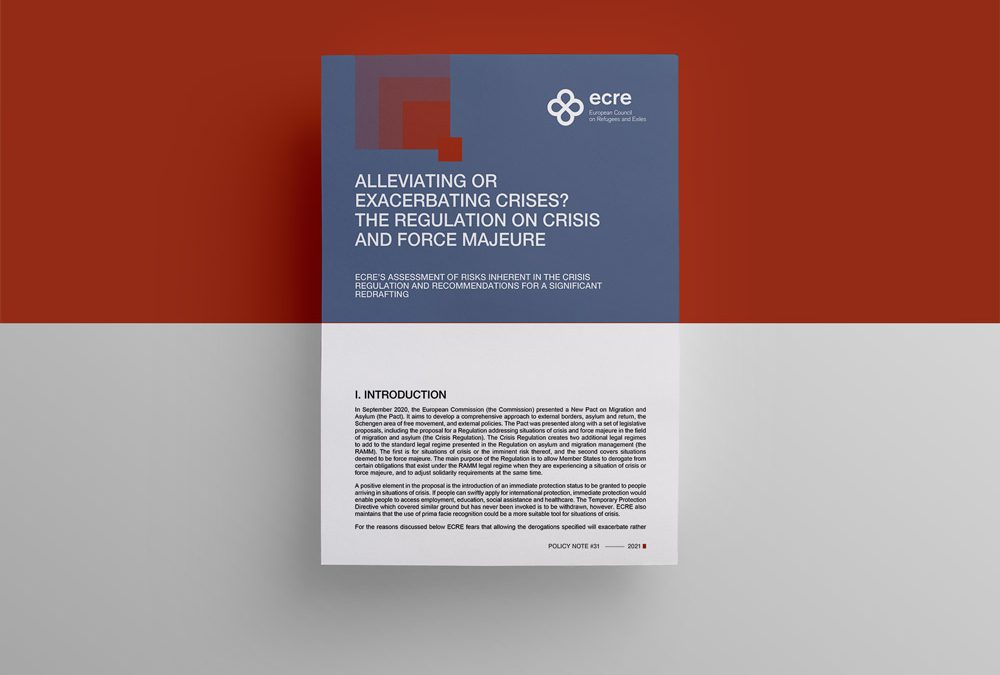This Policy Note offers ECRE’s assessment of risks inherent in the Crisis Regulation and recommendations for a significant redrafting
In September 2020, the European Commission (the Commission) presented a New Pact on Migration and Asylum (the Pact). It aims to develop a comprehensive approach to external borders, asylum and return, the Schengen area of free movement, and external policies. The Pact was presented along with a set of legislative proposals, including the proposal for a Regulation addressing situations of crisis and force majeure in the field of migration and asylum (the Crisis Regulation). The Crisis Regulation creates two additional legal regimes to add to the standard legal regime presented in the Regulation on asylum and migration management (the RAMM). The first is for situations of crisis or the imminent risk thereof, and the second covers situations deemed to be force majeure. The main purpose of the Regulation is to allow Member States to derogate from certain obligations that exist under the RAMM legal regime when they are experiencing a situation of crisis or force majeure, and to adjust solidarity requirements at the same time.
A positive element in the proposal is the introduction of an immediate protection status to be granted to people arriving in situations of crisis. If people cannot swiftly apply for international protection, immediate protection enables them to access employment, education, social assistance and healthcare. The Temporary Protection Directive which covered similar ground but has never been invoked is to be withdrawn, however. ECRE also maintains that the use of prima facie recognition could be a more suitable tool for situations of crisis.
As outlined in our analysis, ECRE fears that allowing the derogations specified will exacerbate rather than alleviate crises, and likely increase risks of fundamental rights violations. The need for the Crisis Regulation can also be questioned. If the Regulation moves forward, ECRE argues for re-drafting it to develop an alternative crisis prevention mechanism with strengthened solidarity provisions and which does not depend on expanding the scope and duration of the border procedure. ECRE argues for withdrawal of the proposals for a legal regime covering force majeure; at very least, there needs to be a check on the unilateral invocation of force majeure by a member state, given the implications for protection and for other Member States.
For more detailed information: please read ECRE Comments on the Commission Proposal for a regulation addressing situations of crisis and force majeure in the field of migration and asylum COM (2020) 613.
Photo: ECRE
This article appeared in the ECRE Weekly Bulletin. You can subscribe to the Weekly Bulletin here.

